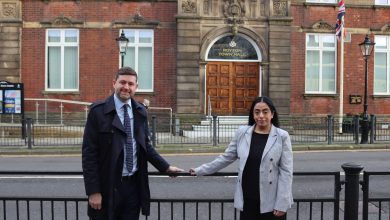Councillors convened earlier this week to discuss the latest budget plans and proposals for the next two financial years. The task at hand is no easy feat, as Oldham Council needs to find £30 million in savings to maintain vital public services for local residents. Despite facing inflation rises and the ongoing impacts of national crises, such as housing and social care recruitment, the council and its staff have been diligently working to bridge the deficit gap. However, the council is also grappling with the consequences of 13 years of central government cuts, having lost over £200 million in funding since 2010. To address these challenges, the council is considering a 4.99% increase in Council Tax, including a 2% Adult Social Care precept and 2.99% for core services. The Adult Social Care precept is specifically allocated to fund social care, while the Council Tax rise will go towards essential services such as caring for vulnerable adults and children, waste management, and neighborhood safety. Councillor Arooj Shah, the Leader of Oldham Council, emphasized the gravity of the situation, stating that this is one of the toughest budgets the council has ever had to set. The council’s priority is to meet the needs of local people, particularly those in the most vulnerable situations. The proposed budget is the result of extensive work to improve efficiency, collaborate with other organizations, and prevent future service demands. Despite being forced to make savings due to government constraints, the council remains committed to fighting for fairer funding for local government. As part of the budget setting process, residents, businesses, and council staff were invited to submit ideas on how to save money. The consultation received over 350 responses, and a comprehensive report will be presented to the Full Council for a final decision on the budget. Councillor Abdul Jabbar, the Cabinet Member for Finance and Corporate Resources, acknowledged the lack of quick fixes in finding £30 million in savings, especially considering the ongoing budget cuts since 2010. In addition to anticipated cost pressures, the council has also faced unforeseen expenses related to increased placements in Children’s Services and temporary accommodation for those without shelter. While difficult decisions must be made, it is crucial to prioritize the services that residents rely on and protect what matters most to the local community.
